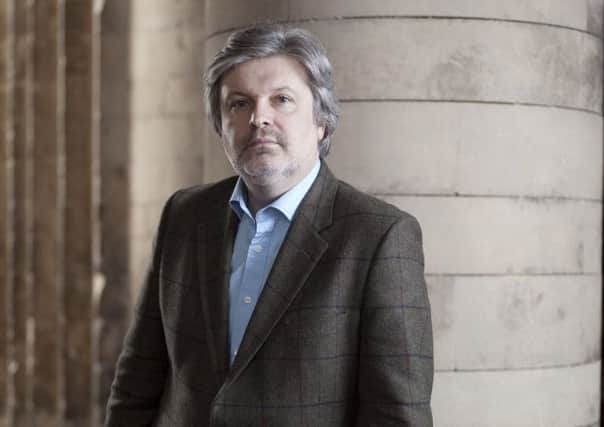Ken Walton: The year in classical music


Both the Referendum and Commonwealth Games had a bearing on classical music in Scotland, but 2014 was also a year of significant comings and goings…
A DISCORDANT NOTE
It’s almost a year now since I flagged up a previously unspoken concern that, in the event of a Yes vote, there might not be a long-term future for the BBC Scottish Symphony Orchestra. Without going over old ground, it was clear to me, and to others with a knowledge of how broadcasting orchestras work, that the scale of the new Scottish broadcasting service outlined in the white paper could not sustain the SSO at the level it has been utilised under the auspices of BBC Radio 3.
Advertisement
Hide AdScottish culture minister Fiona Hyslop attempted to stem the fears in an open letter to Classical Music magazine in September, but her flawed article showed how little her government understood the economic reality and workings of such an orchestra, and that the SSO was little more than an inconvenience and irritation they were hoping could be brushed under the carpet in the heat and passion of the referendum campaign.
The eventual outcome of the vote certainly allayed the fears of the 70-odd musicians directly involved but the SSO will still have a battle to face with the BBC as a whole if the feared cuts have to be made among its house orchestras at a UK level. It has a strong case, particularly as the spotlight is on Scotland while devo-max is negotiated. Time will tell.
PLAYING THE GAMES’ TUNE
The Commonwealth Games gave rise to one-off classical events, in particular one mighty musical initiative that could very well be the seed of an ongoing popular phenomenon. Glasgow Royal Concert Hall’s Marathon Classics Day, which featured wall-to-wall performances by chamber ensembles and all three national orchestras, was an outstanding success.
It drew hordes of visitors, not least to the mega-orchestra concert created by joining together the SSO with the RSNO, and the omnipresence of Nicola Benedetti.
The main lesson to be learnt? There’s a market for not just the GRCH, but concert halls in all our major cities, to open their doors to promotional events like this. It was a hugely successful shop window for classical music, devised by Glasgow Life artistic director Svend Brown, that completely served its purpose. More of these please.
UNFINISHED BUSINESS
Two key infrastructure programmes were due for completion in summer 2014, but both were set back by significant delays. Scottish Opera’s extension to the Theatre Royal was to open in time for the Commonwealth Games, but remained a concrete shell throughout. Delays persisted, and it looked as though this 2014 project would extend into 2015, but lo and behold, Sottish Opera announced this week that its new foyer space is now open to the public.
Advertisement
Hide AdThe RSNO also failed to open its new HQ adjoining the GRCH as scheduled, and it looks like it will be next summer before the orchestra can move in. By then it will have a new chief executive to replace Michael Elliott, who announced in September that he is leaving to head up the Associated Board of the Royal Colleges of Music.
CONSERVATOIRE CHANGES
Elliott’s move is just one of several key personnel changes in the music sector. After 12 helter-skelter years at the helm of the Royal Conservatoire of Scotland, John Wallace stepped down as principal in August to make way for Jeffrey Sharkey, former director of the Peabody Institute in Baltimore, and a pianist, composer and educational leader with a very different, cool-headed approach.
Advertisement
Hide AdHis arrival has coincided with other significant changes down the RCS chain, but the one that is attracting most interest is the appointment of former Scottish Chamber Orchestra principal cellist David Watkin as head of strings. It’s the RCS department most in need of revitalisation, and Watkin’s range of experience – a top level player, conductor and teacher, who recently had to give up playing due to a hand injury – seems exactly what’s needed to make it happen.
FESTIVAL SWANSONG
Jonathan Mills played his final card in August as director of the Edinburgh International Festival. In relation to the mixed success of his previous classical programmes, this was a high-calibre swansong, the only obvious dud being the Mariinsky’s unspectacular production of Berlioz’s epic The Trojans. Opera remains a problem with current Festival programming.
The real excitement came at the Usher Hall, with the likes of the Rotterdam Philharmonic’s unforgettable Mahler 6 and Sir Andrew Davis’s powerful interpretation of Britten’s War Requiem with the Philharmonia Orchestra; and at Greyfriars Kirk, where Messiaen’s Quartet for the End of Time, featuring Scots pianist Steven Osborne, was utterly breathtaking.
More than anything, it was an outstanding Festival for the Edinburgh Festival Chorus. Also for the Scottish Chamber Orchestra, celebrating its 40th birthday.
THE UBIQUITOUS MACMILLAN
This year saw the re-emergence of James MacMillan as a musical force in his native Scotland, not just as composer and conductor (a fascinating retrospective in January of his own youthful works with the BBC SSO started the year), but as creator and director of Scotland’s newest festival.
In October, he inaugurated the Cumnock Tryst festival in his Ayrshire home town, which attracted big name performers such as Harry Christophers’ Sixteen and Nicola Benedetti. It proved a winner with audiences and critics, and is now a fixed event in Scotland’s burgeoning festival calendar,